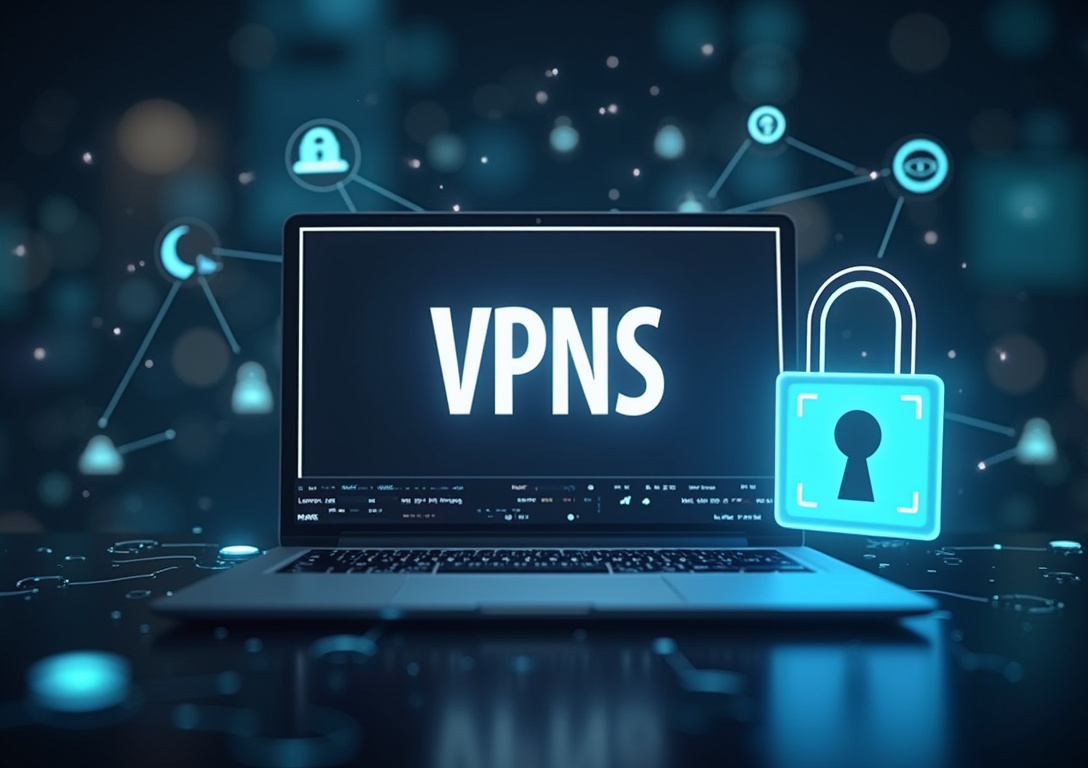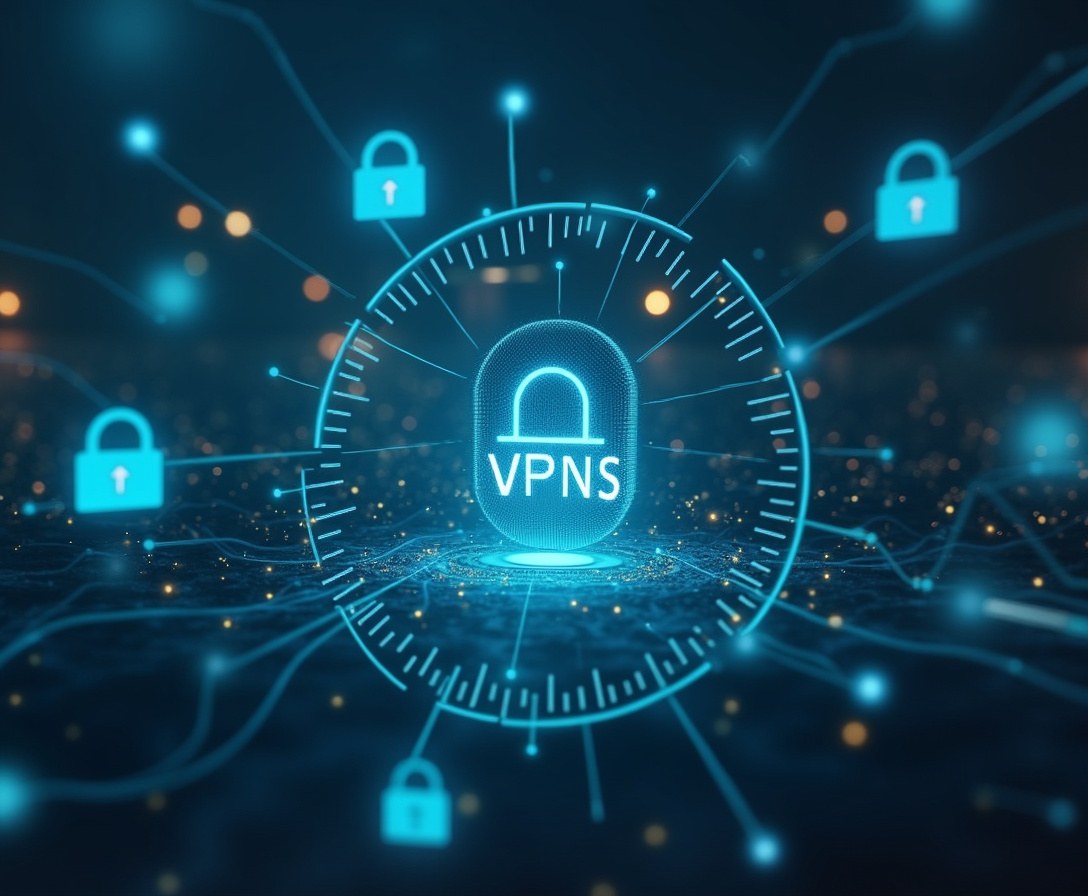How VPNs Enhance Cloud Security for Businesses

Table of Contents
Understanding Cloud Security Challenges
In an era defined by the pervasive adoption of cloud computing, businesses are increasingly entrusting their mission-critical data and applications to remote servers. This migration to the cloud offers undeniable advantages, including enhanced scalability, cost-effectiveness, and accessibility, empowering organizations to operate with unprecedented agility and efficiency. However, this digital transformation simultaneously introduces a new layer of complexity to the cybersecurity landscape, demanding a proactive and robust approach to safeguarding sensitive information in the cloud.
As businesses relinquish physical control over their data, they become increasingly reliant on the security measures implemented by cloud providers and must also take independent steps to protect their assets from evolving cyber threats. This article delves into the critical role that Virtual Private Networks (VPNs) play in bolstering cloud "security" for businesses, exploring how these technologies can be leveraged to create a secure and encrypted conduit for data transmission, mitigating risks and ensuring the confidentiality, integrity, and availability of sensitive business information. The "business VPN" acts as a gatekeeper, ensuring that only authorized personnel can access valuable resources.
The VPN is not just a piece of software; it is an integral part of a company's overall security architecture, designed to work in concert with other security measures such as firewalls, intrusion detection systems, and access control mechanisms. The expansion of cloud services has created a new layer of attack surface. Cloud infrastructure, although generally secure, can be targeted for vulnerabilities that can be exploited by malicious actors.
The role of the VPN in this context is to act as a shield, obscuring the data and adding a layer of encryption that would make any attempts at intrusion significantly more difficult. This becomes even more critical when employees are accessing cloud resources from remote locations. Public Wi-Fi networks, commonly found in cafes, airports, and hotels, are notoriously insecure and are easy targets for hackers looking to intercept sensitive data.
By routing their internet traffic through a VPN, remote workers can create a secure and encrypted tunnel, protecting their data from eavesdropping and unauthorized access. The VPN effectively masks their IP address, making it difficult for attackers to track their online activity and pinpoint their location. Furthermore, the VPN encrypts all data transmitted between the user's device and the cloud server, rendering it unreadable to anyone who might be monitoring the network traffic.
This "data protection" is paramount for businesses that handle sensitive information, such as financial data, customer records, or intellectual property. A VPN shields sensitive data from prying eyes, both internal and external, making it enormously difficult for unauthorized personnel to gain access to critical information. Beyond securing remote access, VPNs also play a crucial role in protecting data in transit between different cloud environments.
Many businesses utilize a multi-cloud strategy, leveraging services from multiple cloud providers to optimize performance, ensure redundancy, and avoid vendor lock-in. However, this can also introduce new security challenges, as data is transferred between different cloud platforms, potentially exposing it to risks. A VPN can establish a secure connection between these cloud environments, encrypting data as it moves between them and preventing unauthorized access.
This is particularly important for businesses that are subject to strict regulatory compliance requirements, such as HIPAA or GDPR, which mandate the protection of sensitive data regardless of where it is stored or processed. Implementing a "VPN for cloud" creates a secure access channel between the company network and its cloud resources. By using strong encryption methods, the data transmitted is kept confidential and shielded from potential eavesdroppers.
This is particularly critical when workers are accessing cloud-stored information from remote devices. Another crucial benefit of employing VPNs rests on their capacity to bypass geographical limits and censorship. In nations with rigorous internet regulations, VPNs allow companies to safely access necessary cloud-based data and tools, guaranteeing business continuity and conformity with global norms.
By employing VPN server locations in various regions, they guarantee safe and unhindered access to essential resources, promoting international operations and cooperation. By masking IP addresses and encrypting information, individuals can access content and use services which may otherwise be restricted due to geographic filtering. VPNs contribute considerably to cultivating a secure and accessible digital environment for companies operating on a global level.
VPNs: A Shield for Cloud-Based Operations
While VPNs provide a crucial layer of protection for cloud-based operations, it is essential to understand that they are not a panacea for all cloud security challenges. A robust cloud security strategy requires a multi-faceted approach, integrating VPNs with other security controls to provide comprehensive protection against a wide range of threats. Think of a VPN as one piece of a larger puzzle, working in concert with other safeguards to create a robust and resilient security posture.
Effective cloud security necessitates a layered approach, where multiple security mechanisms are implemented to address different aspects of the threat landscape. This is often referred to as "defense in depth," where a breach in one layer of security does not necessarily compromise the entire system. Strong authentication mechanisms, such as multi-factor authentication (MFA), are essential for verifying the identity of users attempting to access cloud resources.
MFA requires users to provide multiple forms of identification, such as a password, a security token, or a biometric scan, making it significantly more difficult for attackers to gain unauthorized access, even if they manage to obtain a user's password. Access controls, such as role-based access control (RBAC), limit user access to only the resources they need to perform their job functions, minimizing the potential impact of a security breach by limiting the scope of access that an attacker can gain. Data encryption at rest ensures that data stored in the cloud is protected even if an attacker gains unauthorized access to the storage infrastructure.
This involves encrypting the data before it is stored in the cloud and decrypting it when it is accessed by authorized users. Regular security audits help identify vulnerabilities and weaknesses in the cloud environment and ensure that security controls are functioning effectively. These audits should cover all aspects of cloud security, including network security, data security, and application security.
Incident response planning outlines the steps to be taken in the event of a security breach, enabling organizations to respond quickly and effectively to minimize the damage. Disaster recovery planning ensures that business operations can be restored quickly and efficiently in the event of a major outage. Selecting the right "VPN for cloud" deployment approach is critical to ensuring compatibility, performance, and security.
There are several deployment options available, each with its own advantages and disadvantages. A cloud-based VPN gateway can be deployed directly within the cloud environment, providing a secure connection between the cloud network and the on-premises network or remote users. This approach offers scalability, flexibility, and ease of management, but it requires careful configuration to ensure that the VPN gateway is properly secured.
An on-premises VPN gateway can be deployed on-premises and used to connect to the cloud environment. This approach provides greater control over the VPN infrastructure, but it requires more management overhead and may not be as scalable as a cloud-based VPN gateway. The choice of deployment approach will depend on the specific needs and requirements of the business.
VPN solutions must offer robust APIs and integrations with other security tools, such as firewalls, intrusion detection systems, and Security Information and Event Management (SIEM) systems. Security professionals can get a holistic view of their security infrastructure by using these integrations, improving threat detection and response. Businesses should take into account variables including logging rules, server architecture, and encryption strength when assessing VPN solutions.
For protecting data from eavesdropping, strong encryption techniques like AES-256 are crucial. A VPN provider's logging policies should be open and well-defined, and they should only gather information required to deliver the VPN service. Having a wide range of servers located in different geographic regions may improve VPN's efficiency and dependability.
To guarantee safe "secure business data," a VPN must comply with the strictest encryption standards, ensuring that the encryption will safeguard sensitive company data even in the event of a VPN security breach. Furthermore, routine penetration testing is essential to guarantee that any potential weaknesses are evaluated and fixed before malicious actors can take advantage of them. It's essential to have a thorough knowledge of the unique security needs and risk tolerance of their firm before choosing how to implement a VPN.
Businesses should also consider the long-term costs of ownership, including licensing fees, maintenance costs, and the cost of IT support. Choosing a VPN solution is a significant decision that calls for careful consideration of the organization's security requirements, budget, and technical skills.
Key VPN Protocols and Encryption Standards
Selecting the most suitable VPN solution is a critical decision that directly impacts the efficacy of your cloud security posture. The market offers a diverse array of VPN providers, each presenting a unique combination of features, pricing structures, and security capabilities. A thorough evaluation of these options is paramount to identifying a provider that aligns perfectly with your organization's specific needs and budgetary constraints.
One of the primary considerations is the VPN solution's encryption protocols and supported features. VPNs employ various encryption protocols to safeguard data, with certain protocols offering superior security compared to others. OpenVPN and WireGuard are generally regarded as the most robust protocols, providing strong encryption and resilience against known vulnerabilities.
These protocols leverage advanced cryptographic algorithms to ensure the confidentiality and integrity of data transmitted through the VPN tunnel. Beyond the core encryption protocol, several additional features contribute significantly to the overall security of a VPN connection. A "kill switch" is a crucial safety mechanism that automatically terminates internet access if the VPN connection unexpectedly drops.
This prevents data from being transmitted over an unsecured connection, safeguarding against potential exposure. DNS leak protection is another essential feature that prevents DNS queries from being exposed, ensuring that your online activity remains private. VPN traffic obfuscation, also known as stealth VPN, is a technique used to mask VPN traffic, making it appear as normal internet traffic.
This can be useful for bypassing VPN blocking or censorship in certain regions. These additional features significantly enhance the security and privacy of a VPN connection, providing an extra layer of protection against potential threats. A VPN provider's "data protection" and logging policies are another critical factor to consider.
Some VPN providers maintain logs of user activity, which could potentially compromise privacy in the event of a data breach or legal request. To mitigate this risk, it is essential to choose a VPN provider with a strict no-logs policy, meaning that they do not collect or store any data about user activity. This ensures that your online activities remain private and anonymous.
It is important to carefully review the VPN provider's privacy policy to understand what data they collect, how they use it, and how long they retain it. A transparent and clearly defined privacy policy is a hallmark of a trustworthy VPN provider. The provider's jurisdiction is also an important consideration, as it can affect their data retention policies and legal obligations.
VPN providers located in countries with strong privacy laws are generally considered to be more privacy-friendly. In addition to security and privacy, performance is also a key consideration when choosing a VPN solution. A VPN can introduce some overhead, which can impact internet speed.
However, a well-optimized VPN should minimize this impact. Consider the VPN provider's server infrastructure and the number of servers they operate. A larger server network can improve performance by allowing you to connect to a server that is closer to your location.
Some VPN providers offer specialized servers that are optimized for specific activities, such as streaming or torrenting. These servers can provide better performance and reliability. The user-friendliness of the VPN app is also an important factor to consider.
The app should be easy to install, configure, and use. It should also provide clear and concise information about the VPN connection status. A user-friendly app can significantly improve the overall VPN experience.
When assessing any "secure business data" the costs of VPN implementation must be taken into account. Organizations should consider costs that can be direct and indirect, spanning from licensing fees and infrastructure outlay to possible downtime during setup and instruction costs for staff. Determining an acceptable degree of return on investment involves contrasting the whole cost against the apparent security advantages.
A thorough cost-benefit analysis helps to decide whether the financial dedication lines firmly with the company's security goals and risk mitigation requirements. Examining the scalability of the VPN as businesses grow is crucial. A VPN solution should effortlessly suit growing numbers of employees, wider bandwidth needs, and increasing data amounts without affecting performance, reliability, or security.
Scalable VPN technology makes sure investments remain valuable as expansion occurs and avoids the need for regular, overpriced system replacements.
VPNs for Services: Boosting Security and Privacy
The effective implementation of a "business VPN" solution requires careful planning and configuration to ensure that it seamlessly integrates with existing cloud infrastructure and security policies. A poorly implemented VPN can create vulnerabilities and undermine the overall security posture of the organization. One of the first steps in implementing a business VPN is to define clear security policies and procedures.
These policies should outline the acceptable use of the VPN, the types of data that should be protected, and the roles and responsibilities of employees who are using the VPN. The security policies should also address issues such as password management, device security, and incident reporting. It is important to communicate these policies to all employees and provide training on how to use the VPN securely.
Once the security policies have been defined, the next step is to configure the VPN solution to enforce these policies. This may involve setting up access controls, configuring encryption protocols, and implementing logging and monitoring. Access controls should be used to restrict access to sensitive cloud resources based on user roles and responsibilities.
This helps to prevent unauthorized access to confidential data. The VPN should be configured to use strong encryption protocols, such as AES-256, to protect data in transit. Logging and monitoring should be enabled to track VPN usage and identify any suspicious activity.
This helps to ensure that the VPN is being used securely and that any potential security breaches are detected and addressed promptly. Integrating the VPN with existing security infrastructure, such as firewalls, intrusion detection systems, and SIEM systems, is crucial for creating a comprehensive security ecosystem. This integration allows for a coordinated response to security threats and ensures that the VPN is working in concert with other security controls.
For example, the VPN can be configured to send security logs to the SIEM system, which can then be used to detect and analyze suspicious activity. The firewall can be configured to block traffic from known malicious IP addresses, even if the traffic is coming through the VPN. Regular monitoring and maintenance are essential for ensuring that and a "VPN for cloud" continues to function effectively and securely.
This includes monitoring VPN performance, reviewing security logs, and applying security patches and updates. VPN performance should be monitored regularly to identify any potential bottlenecks or performance issues. Security logs should be reviewed to identify any suspicious activity or potential security breaches.
Security patches and updates should be applied promptly to address any known vulnerabilities. User training and awareness are critical for ensuring that employees use the VPN properly and understand the importance of security. Training should cover topics such as password management, device security, phishing awareness, and social engineering.
Employees should be educated about the risks of using public Wi-Fi networks and the importance of connecting to the VPN before accessing sensitive cloud resources. Regular security awareness campaigns can help to reinforce these messages and keep security top of mind. A well-trained and security-aware workforce is a valuable asset in protecting against cyber threats.
Remember that "cloud security" is just one measure in your overall security strategy. Regular security audits help to identify vulnerabilities and weaknesses in the cloud environment and ensure that security controls are functioning effectively. These audits should cover all aspects of cloud security, including network security, data security, and application security.
Internal and external audits can provide valuable insights into the effectiveness of the cloud security strategy. Security audits are a critical component of a comprehensive cloud security program. Businesses must consider the long-term implications of their VPN implementation decisions.
In cloud environments that see heavy use, VPN performance may decrease, leading to user unhappiness and reduced productivity. It also becomes more difficult and expensive to manage and maintain as firms grow. Before adopting a VPN, you must carefully consider these long-term factors to guarantee it conforms with the company's strategic goals and technological roadmap.
Regular reviews are essential, making sure the VPN is still useful and in line with organizational goals as objectives and requirements change. Regular reviews offer chances to evaluate its current usefulness, fix any shortcomings, and make sure it supports general company goals. This guarantees that it stays a crucial protection, adapting to changing situations and effectively boosting the security of cloud-based data.
In conclusion, Virtual Private Networks (VPNs) play an indispensable role in enhancing cloud security for businesses operating in today's dynamic digital landscape. By establishing a secure, encrypted tunnel between users and cloud resources, VPNs effectively mitigate various security risks associated with cloud adoption, including unauthorized access, data breaches, and man-in-the-middle attacks. Furthermore, the capability of a "business VPN" to mask IP addresses and encrypt data in transit provides a crucial layer of privacy and anonymity, safeguarding sensitive business data from prying eyes.
However, it is essential to recognize that VPNs are not a silver bullet for all cloud security challenges. To achieve comprehensive protection, VPNs must be integrated with other security measures, such as strong authentication mechanisms, access controls, data encryption at rest, and regular security audits. This layered approach, often referred to as "defense in depth," ensures that a breach in one layer of security does not necessarily compromise the entire system.
The selection of the right VPN solution is paramount to maximizing its effectiveness in enhancing cloud security. Businesses should carefully evaluate their options, considering factors such as encryption protocols, logging policies, server infrastructure, and integration capabilities. Choosing a VPN provider with a strong reputation for security and privacy is essential for ensuring the confidentiality and integrity of sensitive business data.
Effective implementation of a VPN solution requires careful planning and configuration. Businesses should define clear security policies and procedures, configure the VPN to enforce these policies, and integrate the VPN with existing security infrastructure. User training and awareness are also critical for ensuring that employees use the VPN properly and understand the importance of security.
A well-trained and security-aware workforce is a valuable asset in protecting against cyber threats. Regular monitoring, maintenance, and updates are essential for ensuring that the VPN continues to function effectively and securely. When working with "secure business data" VPN solutions must be regularly monitored and updated to address any new vulnerabilities or security threats.
This allows the company to ensure that the VPN remains in compliance with any industry regulations. By taking these steps, businesses can leverage the power of VPNs to enhance their cloud security posture and protect their valuable assets from evolving cyber threats. The use of a VPN improves overall data compliance and security by conforming with industry rules and data protection laws.
Companies can safely handle sensitive data while adhering to legal requirements by encrypting data and limiting access to it. This not only lowers the chance of data breaches and legal penalties but also fosters client, partner, and stakeholder confidence. The use of VPNs encourages responsible data management, strengthens data compliance procedures, and guarantees enterprises maintain the highest standards of security.
Looking ahead, the role of VPNs in cloud security is likely to evolve as new technologies and threats emerge. The adoption of zero-trust security models, which assume that no user or device should be trusted by default, will likely drive increased reliance on VPNs for secure access to cloud resources. The rise of edge computing, which involves processing data closer to the source, will also necessitate the use of VPNs to secure data in transit between edge devices and cloud servers.
Additionally, as cloud environments become more complex, businesses will need to leverage VPNs to secure their hybrid and multi-cloud deployments. The future of "cloud security" will require a holistic approach, integrating VPNs with other security technologies to create a comprehensive and adaptive security posture. The landscape for VPNs is always changing, and new technologies and encryption protocols will further improve safety and performance capabilities.
Quantum-resistant encryption, for example, aims to protect VPN connections even from quantum computing attacks in the future. Zero-trust network access (ZTNA) techniques that depend on verification and continuous authorization are likely to become more widespread, strengthening VPN security architectures. Staying ahead of these developments is critical for organizations looking to maintain a secure and effective cloud environment as technology advances.
By anticipating and adopting new VPN solutions, companies can strengthen their protection against cybersecurity risks and data breaches, guaranteeing long-term stability and innovation in the cloud.
Stay Updated
Get the latest VPN news, tips, and exclusive deals to your inbox.




